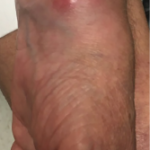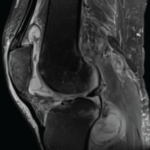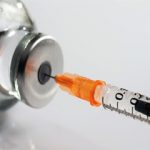Interferon gamma release assays (IGRAs) are more specific than skin tests and are probably more sensitive, but they can give false negatives, Dr. Iseman said. “We don’t yet know their predictive value over time, indeterminate results are common, and they are expensive and technically restrictive,” he said.
A better screening method, he said, involves several steps:
- Complete history, including information related to race, ethnicity, poverty status, travel, country of origin, and occupation;
- A physical exam to identify nodes and abscesses;
- TB skin test;
- IGRAs;
- A chest X-ray; and
- Questions about prednisone use for one month or longer or use of TNF-α therapy.
As an example of the value of patient history, Dr. Iseman reviewed the case of a 47-year-old woman who lived in Manila, Philippines, for more than 40 years and had been a nurse’s aide as a young person. Her skin test was negative, and she did not test positive on IGRA.
For high-risk patients, such as the nurse’s aide, a 5-mm induration on the skin test should be considered positive, whereas 10 mm is considered positive for people not at high risk, Dr. Iseman said. For patients with a negative skin test and positive IGRA, there is high likelihood of latent TB. For patients with a negative skin test and negative IGRA but other risk factors, such as travel or work in healthcare, there is no assurance that the patient is free of latent TB. The cutoff point for IGRA assays should be lower in high-risk patients, he said.
Treatment Options for Latent TB
Dr. Iseman reviewed the latest American Thoracic Society/Centers for Disease Control and Prevention guidelines for treatment of latent TB. These guidelines recommend the following drug regimen:
- Isoniazid therapy for nine months; or
- Isoniazid therapy for six months; or
- Rifampin for four months.
- Rifampin/pyrazinamide should not be offered for treatment.
Also, treatment of latent TB should be used for two to four weeks before beginning a TNF-α agent. Patients can be serially reinfected with TB and continue to be vulnerable, he said. “So you have to be aggressive for looking out for reinfections.” Patients infected with multidrug resistant TB will require more complicated therapy.
Kathy Holliman is a medical journalist based in New Jersey.



